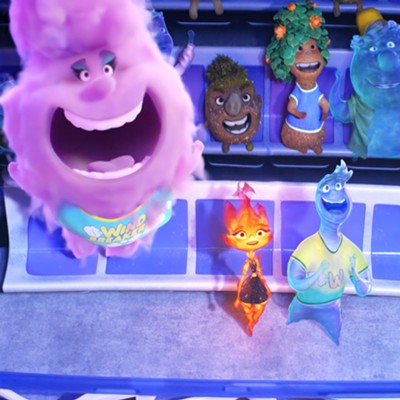It´s both adorable and terrifying to watch Wall Street: Money Never Sleeps and see the ultimate ‘80s icon of sharky, sociopathic greed — Gordon Gekko — reduced to an object of quaint amusement. Is this the guy — this washed-up old man who looks in the light of the Great Recession like a small-time operator — who inspired such widespread hand-wringing, such pop-culture agita back in the day? How wonderfully naive we were about how much damage the moneychangers could do to us.
Gekko is back in Oliver Stone’s followup to 1987’s Wall Street, but just barely. It’s 2008, and he has been out of prison for seven years, living relatively modestly on the sales of his book, Is Greed Good? He talks to university students, tells ’em, flat-out, things such as “The mother of all evil is speculation.” Gordon Gekko today is, God help us, a voice of reason.
And Michael Douglas slips so smoothly back into the role that even we, who know him for a villain, can’t help but be charmed — though we’re also put on our guard.
Gekko is still the bad guy, of course, but he simply cannot hope to measure up against the villainy of the financial criminals running the actual Wall Street in 2008. If JFK was Stone’s paean to the conspiracy theories surrounding a presidential assassination, then Money Never Sleeps is his sickening portrait of conspiracy fact about the billionaires who collude to maintain the financial circle-jerk that props them all up.
(The movie is only gussied up as fiction.) Stone’s film looks like something out of the most paranoid of fantasies when he places the masters of Wall Street — played by actors including Frank Langella, Eli Wallach, and a chillingly banal Josh Brolin — around a conference table at the Federal Reserve Bank in New York City, then allows them to connive ways they can prevent their own bad acts from bringing them down. Oh, and in the process, they’ll get even richer — by getting the federal government to pay off their debts.
This is, in some aspects, a much more cynical flick than the first one was. The Twin Towers that dominated the skyline of Lower Manhattan in Wall Street are pointedly absent here (the film even pauses momentarily to contemplate Ground Zero at one low point in the story); the aggression of the ’80s has laid waste to a metaphoric landscape. Even the few spots of idealism in Money Never Sleeps feel oddly muted and contradicted. Our putative hero, hot-shot trader Jake Moore (Shia LaBeouf) — who is engaged to Gekko’s estranged daughter, Winnie (Carey Mulligan) — has a pet project he’s been pushing to anyone who will listen: a greenenergy experimental fusion power plant that needs an infusion of $100 million if it’s going to keep operating. It’s as if the film is suggesting, by the outrageousness of Jake’s idealism, that idealism is a tough attitude to maintain today.
If the last few minutes of the film end up clashing with all that has come before, then ... well, it’s the only major problem with Wall Street: Money Never Sleeps. And it’s one we can forgive, because everything that came before is told so dynamically by a filmmaker who is a master of visual storytelling.
This is an enormously entertaining film, and a rather scary one, too.




















